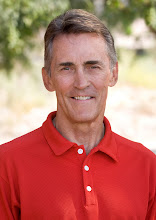Advice for Coaching a Junior Cyclist
Today I received an email question from a rider who is working with a 14-year old mountain biker. The youngster just finished his first season in the sport. The bottom line is that older rider is looking for advice on how to train a junior who appears to have good potential for the sport. I went through this with my own son, Dirk, about 27 years ago. He's now 39 years old and is still a hell of an athlete. If I did one thing in my life that I got right, this is it. So here is my reply...
Around the age of 14 it becomes very difficult to offer advice for athletes without knowing them. While offering advice is hard for athletes of all ages, it's especially challenging at that age range because some youngsters are already quite mature while others are just starting to mature. I'm assuming that if he was second last year that he is in the more mature category and offer the following advice accordingly.
I should also preface this by saying that what you are aiming for is several years away. So the most important aspect of his training should be enjoyment. Your primary goal is to have him still training and racing when he is 24. If you achieve that everything else will take care of itself. If this is achieved he'll grow as an athlete at a rate which is appropriate for him.
So with all of this in mind, here are replies to your questions.
Q: What sort of annual hours should I schedule for him?
A: Athletes can typically increase their volume after their first year by 15-20%. But to be truly competitive the key is not volume but rather workout duration and intensity, especially race-specific durations and intensities. The best way to do this is to race for fun and to also do group rides.
Q: Should I get him to use a HR monitor and if so should I try and test him to set his HR zones for training? While I don't have a power meter I plan to purchase a turbo trainer with a power function. Could I test him on that perhaps?
A: It's good for him to have a HR monitor just to start figuring out what this is all about. You can certainly test him on the trainer to set up his zones. That's fine. But I'd probably have him training mostly based on perceived exertion as this is something a successful athlete must master. Knowing how he feels is more important than monitoring biometrics. He'll eventually be a better athlete because of that.
Q: From watching him race I would say that endurance and strength would be his areas of weakness in comparison with the others in his age group. What sort of workouts should I schedule for strength? Should I get him to do some body weight squats and step-ups? Would hill reps be appropriate?
A: I would not have him do much traditional strength at all. But it would be good if he spent some time in the weight room this winter just becoming familiar with such training and using very light loads, such as an empty bar. Don't load him up on any exercise. Learning the various exercises and how to do them with perfect form is more important now than gaining strength. As for hill reps, I'd suggest not doing that but rather keep the workouts less structured. Races and workouts on hilly courses would be preferable.
Q: Also he suffered a sore back in one race which I think was due to a weak core/lower back. Should I get him to do some core and stretching even at his age?
A: Do you have a physio/physical therapist you could take him to for a full-body assesment of physical strengths and weaknesses? While it would probably be beneficial for him to do core work and stretching, before devoting a lot of time and effort to it you might find it helpful to know more about his exact needs.
Q: Finally should I use the workouts detailed in your books for the base period such as S1 spin-ups, S2 etc and? What should the majority of his training focus on this year?
A: Speed skills workouts such as those you mention here are excellent for a young novice rider. As a mountain biker he should also work on trail-riding skills a lot. If you want to really challenge him with something, make it skills. Young athletes typically enjoy mastering skills and this is also something that will pay off for many years to come.
Labels: junior cyclist

